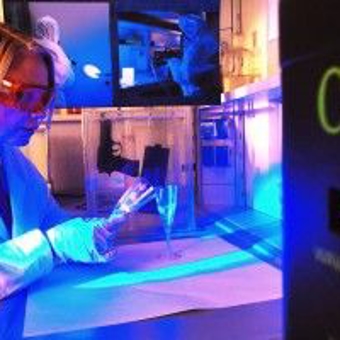
Detroit Sex Crimes Defense Attorney
Defending Against Criminal Sexual Conduct Charges in Michigan
Criminal Sexual Conduct (CSC) charges are unlike any other criminal charge in Michigan. There is usually bias surrounding sexual assault and other sex crimes – regardless of guilt or innocence. Additionally, CSC charges include unique laws and court procedures, including special rules of evidence, Rape Shield motions, and many more. CSC cases also have a higher-than-average likelihood of going to trial, and penalties on par with homicide charges.
When you are facing such serious charges, and your life and future are on the line, you need a lawyer who focuses on criminal sexual conduct cases. Fortunately, you’ve found Michigan criminal sexual conduct defense attorney, Brian J. Prain and Prain Law, PLLC.
Our firm and founding attorney have the knowledge, skill, training, and experience to pursue the best possible results in your case. We have obtained not guilty verdicts in even the most serious CSC cases, and we can help you, too. With our focus on CSC cases, hard work, attention to detail, and history of successful jury trials, we are ready to handle your defense.
Client Testimonials: Success Stories from Our Defense
- “Words cannot adequately express the attention, care, compassion, and work that Mr. Prain demonstrated throughout this entire ordeal.”
- "He is someone who puts his heart and soul into the case he works on."
- "He knows the Law and he will fight for his clients!"
Read more about what our past clients have to say about our Michigan criminal sexual conduct lawyer by visiting our Testimonials page.
No matter how insurmountable your obstacles may seem, contact Prain Law, PLLC today, and learn how our Michigan criminal sexual conduct lawyer can help you during a free, no-obligation consultation.
Understanding Criminal Sexual Conduct Charges in Michigan
Criminal Sexual Conduct (CSC) charges in Michigan are often more serious than homicide. Split into 4 “degrees,” Michigan’s Criminal Sexual Conduct laws include penalties as harsh as life in prison without the possibility of parole. If you are convicted of Criminal Sexual Conduct, the likelihood of going to prison is very high. Other consequences include having to register as a sex offender, lifetime GPS tether, HIV/STD testing, and more.
First Degree Criminal Sexual Conduct (CSC 1)
First Degree Criminal Sexual Conduct in Michigan (First Degree CSC) is the most serious of the Michigan Degrees of Criminal Sexual Conduct because it carries up to life in prison, consecutive sentencing, lifetime electronic monitoring (tether), and of course, a lifetime of Sex Offender Registration on the Michigan Sex Offender Registry (SORA).
- The Law: MCL 750.520b
- Penalty: Life in State Prison, possible Life without Parole, possible minimum 25 years, Lifetime GPS tether
- Sex Offender Registration: Lifetime public registration, quarterly reporting (Tier 3)
Second Degree Criminal Sexual Conduct (CSC 2)
Compared to the other Michigan degrees of criminal sexual conduct, second degree criminal sexual conduct falls in the middle with a 15-year maximum sentence similar to third degree CSC, though it is defined and treated differently for sentencing. Second degree CSC is less serious than first degree CSC but more serious than fourth degree CSC.
- The Law: MCL 750.520c
- Penalty: 15 years in State Prison, possible Lifetime GPS tether
- Sex Offender Registration: Lifetime or 25 years public registration, quarterly semi-annual reporting (Tier 2 or Tier 3, depending)


Hear From Our Clients
Real People. Real Reviews.
-
“His attention to detail and willingness to go against people who are "respected" by most of the general public speaks volumes.”Former Client
-
“He is reasonably priced and always on top of everything, and if he doesn't know something, he finds ALL of it out! I”Former Client
-
“Simply put, Brian is savvy lawyer and a forthright, amazing person.”Laura
-
“If you look for a criminal defense lawyer to get the best possible outcome regarding your specific situation, then contact Brian, I really recommend him in that regard.”Reza
-
“I knew right away this was my best chance to get the best possible result out of my horrible situation.”James P.
-
“He was honest in his advice and evaluation - he was genuine in his concern and his efforts to bring justice were incredible.”P.
-
“Brian is an honest and hardworking attorney who does not only care about the money.”Matt
-
“Brian is simply the most dedicated lawyer one can find.”Steve C.

Why Hire Prain Law, PLLC?
Defense You Can Depend On. Experience You Can Trust.
Prain Law, PLLC is a firm name that Michigan knows and trusts for proven defense. Our allegiance lies with the criminally-accused, and we spend 100% of our time and efforts taking a stand for their rights. Whether inside or outside of the courtroom, we stick with your side of the story no matter what. Before hiring a defense attorney for your case, make sure that he or she is qualified enough to handle it.
-
Committed to Winning & Refusing to Lose
Taking a loss is never an option at our firm. We are prepared to do everything it takes to reach a favorable outcome.
-
Experienced Trial Attorney & Courtroom Champion
Attorney Prain's fearlessness and powerful legal abilities have led to many dropped charges and "not-guilty" verdicts.
-
100% Dedicated to Defending Sex Crimes
Criminal defense is our firm's exclusive focus. We are committed to protecting and defending the accused.
-
Top-Ranked Michigan Criminal Defense Attorney
Attorney Prain has been selected by the Super Lawyers® organization every year since 2013, & has. "10.0" Avvo Rating.
-
 Accused of Criminal Sexual Conduct?
Accused of Criminal Sexual Conduct?When faced with a charge this serious, you need a powerful and proven legal team in your corner. Prain Law, PLLC is prepared to defend your good name.
-
 Experienced in Achieving the Best Possible Outcomes
Experienced in Achieving the Best Possible Outcomes
Criminal cases are resolved through trial, plea agreements, or, in rare instances, dismissals of some or all charges. With extensive experience in all three paths, Attorney Brian K. Prain will go the extra mile to protect your freedom and constitutional rights. -
 Common Criminal Sexual Conduct Questions
Common Criminal Sexual Conduct QuestionsNavigating the justice system can be challenging without proper knowledge of its working components. Get the clarity you need to make informed decisions.
Prain Law, PLLC's Blog
Want all the latest news or updates? Browse through our blog to read our most recent posts and featured articles.





